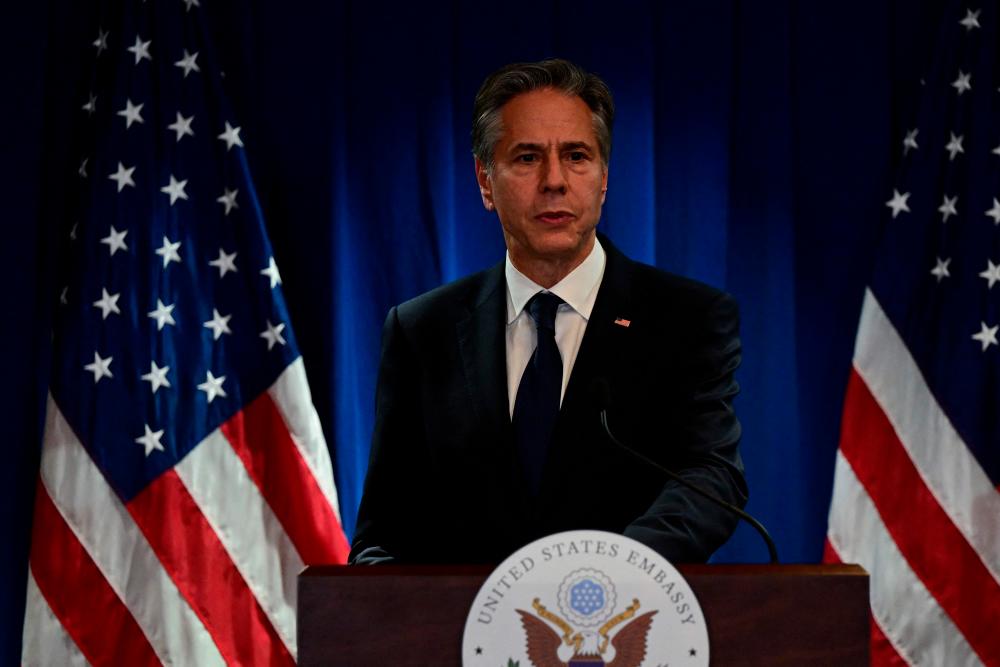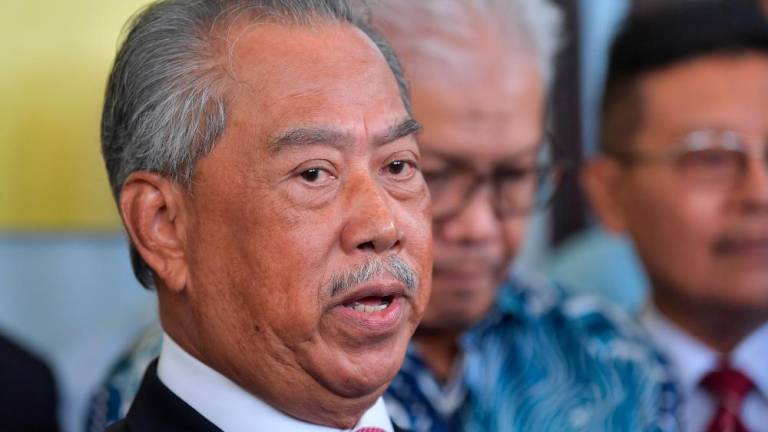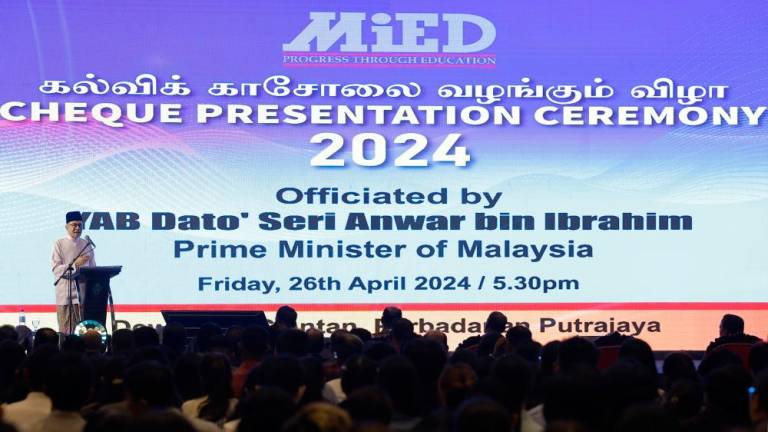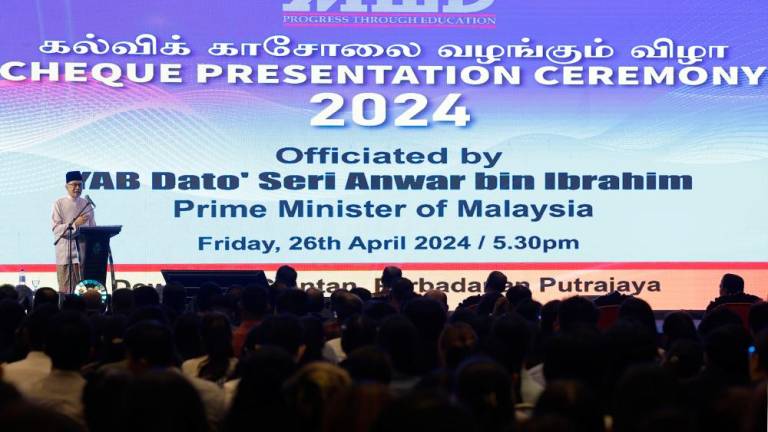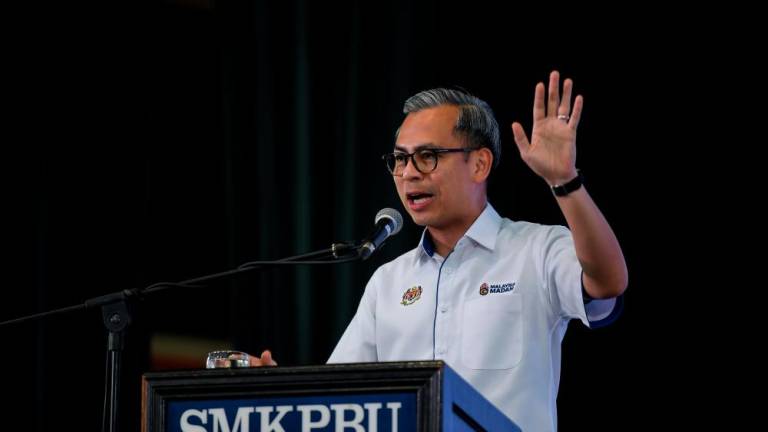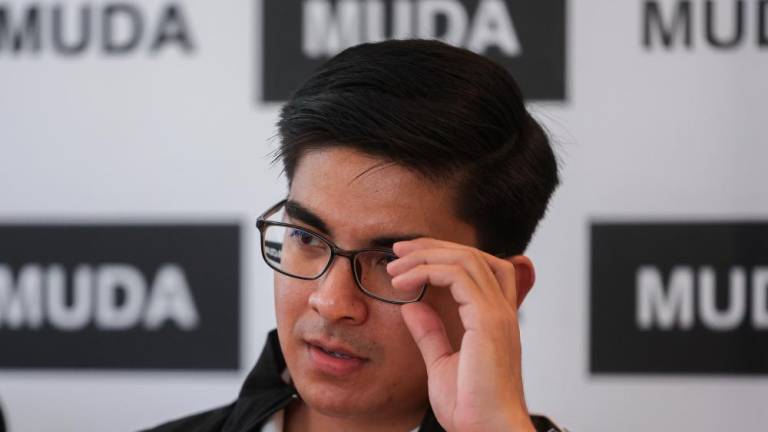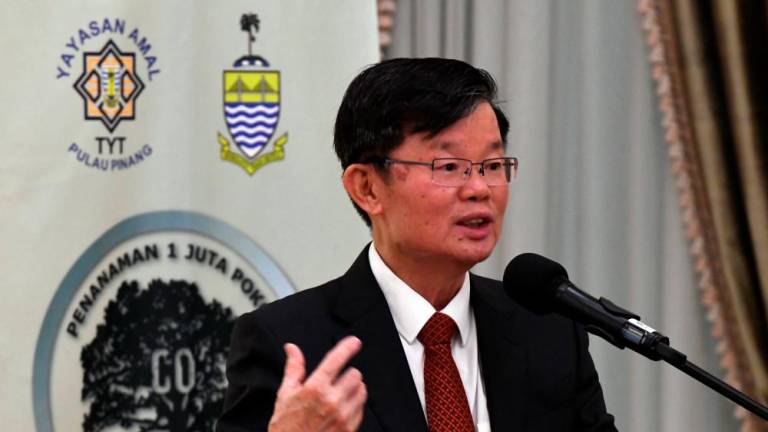US Secretary of State Antony Blinken’s visit to China has been hailed by anxious observers and regional players as one that is crucial for stabilising the rivalry and minimising the direct fallout on regional security architecture.
However, the depth and structure of the deep mutual mistrust and suspicions exacerbated by Beijing’s increasing bellicosity in the air and at sea in challenging the US’s military assets will not be mitigated by the goodwill of the visit alone.
The visit will provide a huge moral and strategic win for Beijing and further weakens Washington’s standing, being looked at as weak and desperate in appeasing China to play by the rules and to be responsible in the game.
The first top-level meeting in Alaska in 2021 has played well into Beijing’s end goals of humiliating Washington in its own house, where the Chinese delegation lectured the Americans led by Blinken and ranted on America’s actions and values, with little resistance.
The ascension of China President Xi Jinping into his third term has created a new spectrum of urgency for him to shore up his internal consolidation of power and to break the US-led Western containment intensity through a two-pronged approach.
Firstly, to cement his legacy and strength at home by playing up a consistent nationalistic drive for the revival of the Chinese Dream and protecting Taiwan.
This is more easily achievable by distracting the local audience from the current internal socio-economic crisis by playing the victim card and pinning the blame on the predatory actions of the West in prying Taiwan away and in enforcing the economic and technological embargo.
Secondly, by strengthening its version of friend-shoring and enhancing its years-long self-sustaining economic independence in its moves of decoupling and de-risking processes.
The Covid-19 pandemic has jolted Beijing into the realisation of both the negative consequences and the potential openings in moulding a new global economic framework that is pillared on Beijing as the main economic nucleus in the supply chain and critical resources.
This gives a new overwhelming leverage for China in using that as effective economic blackmail in weaponising these tools in times of conflict against the West.
Regional players that remain under this economic orbit will be forced to accommodate Beijing’s security push and in refraining from aligning deeper with Western overtures.
By ensuring China’s own technological and economic self-reliance, it will lessen the fallout from the West’s current and future sanctions should it make a move on Taiwan, and in giving China bigger room in forcing Washington to play into its dictate and game.
The increasing number of countries and regions now beholden to the Chinese economic dictate has given Beijing more confidence to increase its bargaining chip and frame the rivalry with the US in its pacing.
The military snub that has been ongoing for months highlighted this notion of Beijing’s increasing confidence and a new power play in shaping the narrative by forcing the US to be trapped in its options.
The Shangri-La Dialogue has given a clear intent of Beijing’s game to force Washington into a corner and by making it look weak and desperate to appeal to Beijing to maintain lines of military communications.
It is meant to test Washington’s responses and to force it to make mistakes and miscalculations, which would then be used as a pretext in justifying its greater responses and actions in hotspots in the region.
By being cold to US overtures including setting guardrails and initiating more risk reduction mechanisms, Beijing can exert more pressure on Washington to make further concessions to Beijing’s advantage.
By going to China without a projection and position of strength and uncompromising display of a clear red line on Beijing’s actions, it will be a strategic mistake for the US.
It will give Beijing the win on its immediate goal of forcing the US into a trap and securing Xi’s credentials at home.
The pattern of Beijing’s renewed agenda in taking the game into Washington’s backyard has been getting clearer, from the spy balloon manoeuvre to the recent revelation on the Cuban spy base.
Beijing is emboldened and confident enough to undertake this new strategy, mainly from the blunders of the US itself in being late and disconnected in the pushback against China.
The disastrous exit in Afghanistan and the mixed signals given by the Joe Biden administration both in economic and security pushback measures have made the US look even weaker in the eyes of both Moscow and Beijing.
The lost opportunities of exerting a clear power parity gap, especially with Donald Trump’s peace through strength mantra, have been replaced by a seemingly clueless and failed approach to reorienting ties with China.
Just like the many regional and global players being trapped by the economic dogma of overreliance on China, the US has not been able to jettison itself from the intertwined economic dependence on China and all the decoupling and de-risking talks are manifestations of the reluctance to shore up the US’s internal self-creation and sustaining capacity.
During the Cold War, Washington was not reliant on the Soviet Union for its economic progress and had the full spectrum of openings to chart strategic counter-responses.
The same cannot be said for Beijing and a continuous clueless approach will only tilt the power parity further into Beijing’s favour.
Blinken’s visit can also be used to trap the US in a blame game and further solidify Beijing’s narrative.
It will send a message to existing Chinese satellite states and peripheries that the US is no longer invincible and can now be desperate enough to go all the way in appealing to China to restrain and behave.
Beijing now has the full leverage to justify its new normal of intimidation and coercion of Taiwan in its continuation of daily harassment, using the West’s “provocations” and “disrespect for China’s internal affairs” as the ultimate pretext.
The same bellicose actions in the South China Sea and the continuation of Beijing’s friend-shoring from the Middle East to Latin America will further intensify to capitalise on this opening.
The peace brokering movements in the Middle East, the move to consolidate ties with both Riyadh and Tehran and the intensification of taking the game into the US’s courtyard through escalating espionage activities are all intended as a message to both the West and the rest of the world.
Beijing’s continuous power projections and narrative-building efforts in both soft and hard power overdrive from Brazil, Russia, India and China to the galvanisation of influence in the Global South, whether through de-dollarisation movements or a sustained pivot into China-centric economic fulcrum and supply chain, have yielded considerable successes that further dwindled the impact of the US’s disintegrated and slow counter-response.
French President Emmanuel Macron’s cosying up to Xi and the continuing divide in Europe over the right approach to China, from the Huawei disagreement to trade policies, especially in China satellite states in Eastern Europe, all provide baby steps of confidence to Beijing in its global coalition build-up.
Playing the victim card and flipping the narrative on US sanctions, unfair embargos and containment efforts have also created a stronger soft power narration and persistent economic tools and espionage avenues in winning friends through official and hidden sway.
However, this pattern of growing confidence will not last long.
Xi realises he still faces the trap of time and that Beijing will lose the powerful momentum to the US in the long run.
The prospects of a Trump comeback in 2024 despite his current ordeals will render Xi’s dream and momentum to almost absolute futility, knowing how he will redouble efforts to change the power parity to Washington’s advantage.
The coming US presidential election will also see a joint target of China where consistent hawkish views by both parties on China will be exploited by Beijing to cement its narrative and to win the global audience.
China’s peak power status now, as argued by some, will also mean a more dangerous pattern being unleashed by Xi, in facing a fast-closing time frame for his rejuvenation drive and in cementing his legacy, through more bold and assertive manoeuvres.
If miscalculations happen, the blame will be pinned on Washington and Beijing will again emerge as the winner in a lose-lose situation for Washington.
Beijing is now challenging the US in its backyard and is no longer confined to the Indo-Pacific.
It appears to be more confident than ever to push Washington further, where Beijing will be ready to take the first punch from Washington to have the right pretext to push back further with an improved second strike capacity.
It will also win the moral judgment and justifications, in triumphing over the moral war against “US imperialism”.
The sabre rattling and cat and mouse wait of who will take the first punch are thus crafted in Beijing’s favour.
Washington still has the edge in a protracted conflict with Beijing and it still has room to fully reorient its approach to Beijing by changing the whole approach, including the failed pandering and utopian hope and support for Beijing to mend its ways.
Unless Washington is strategic and bold enough to acknowledge the gap and disparity and its failure of 30 years to engage China, it will indeed face the most consequential challenge to its dominance albeit not enough to dethrone its long-term assurances.
Xi might face a fast closing time frame but at least he enjoys bigger manoeuvring rooms than Biden.
For his political prospect and the US hope of maintaining its primacy, Biden cannot play the same script repeatedly that has been proven to be futile over the last three decades and expect a different result on China’s part.
It is time for the US to capitalise on its own greatest strength and that is its unrivalled self-creating capacity to generate economic and security prosperity through the might of its values and moral high ground.
If peace is desired, strength is needed. Weakness creates further aggression and the peace through strength mantra by Trump has been argued to bring peace and stability through clear and credible deterrence.
The US is well equipped for both the value-based drive and hard power deterrent capacity.
The question is when the US will wisely utilise its greatest assets that have kept the rules-based order and world peace intact for the past seven decades, without losing the positive global perception and narrative of its responsibilities and roles.
Collins Chong Yew Keat is a foreign affairs and strategy analyst at Universiti Malaya. Comments: letters@thesundaily.com



